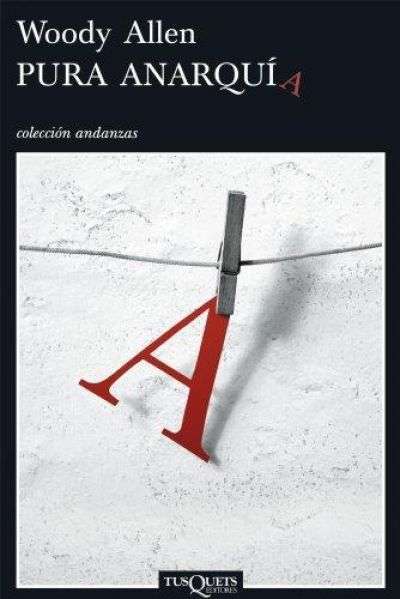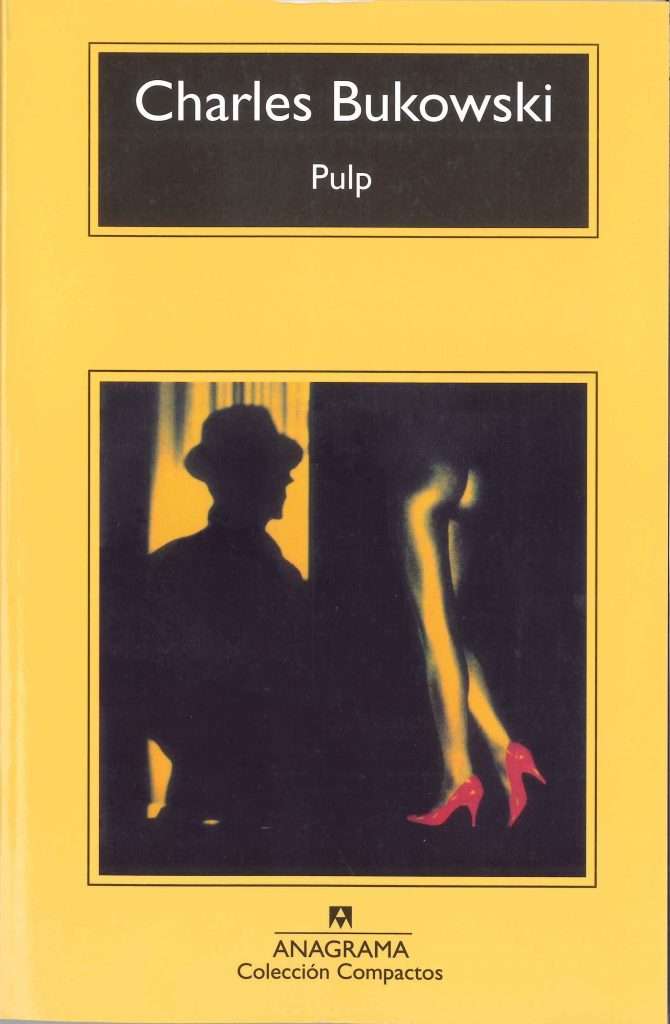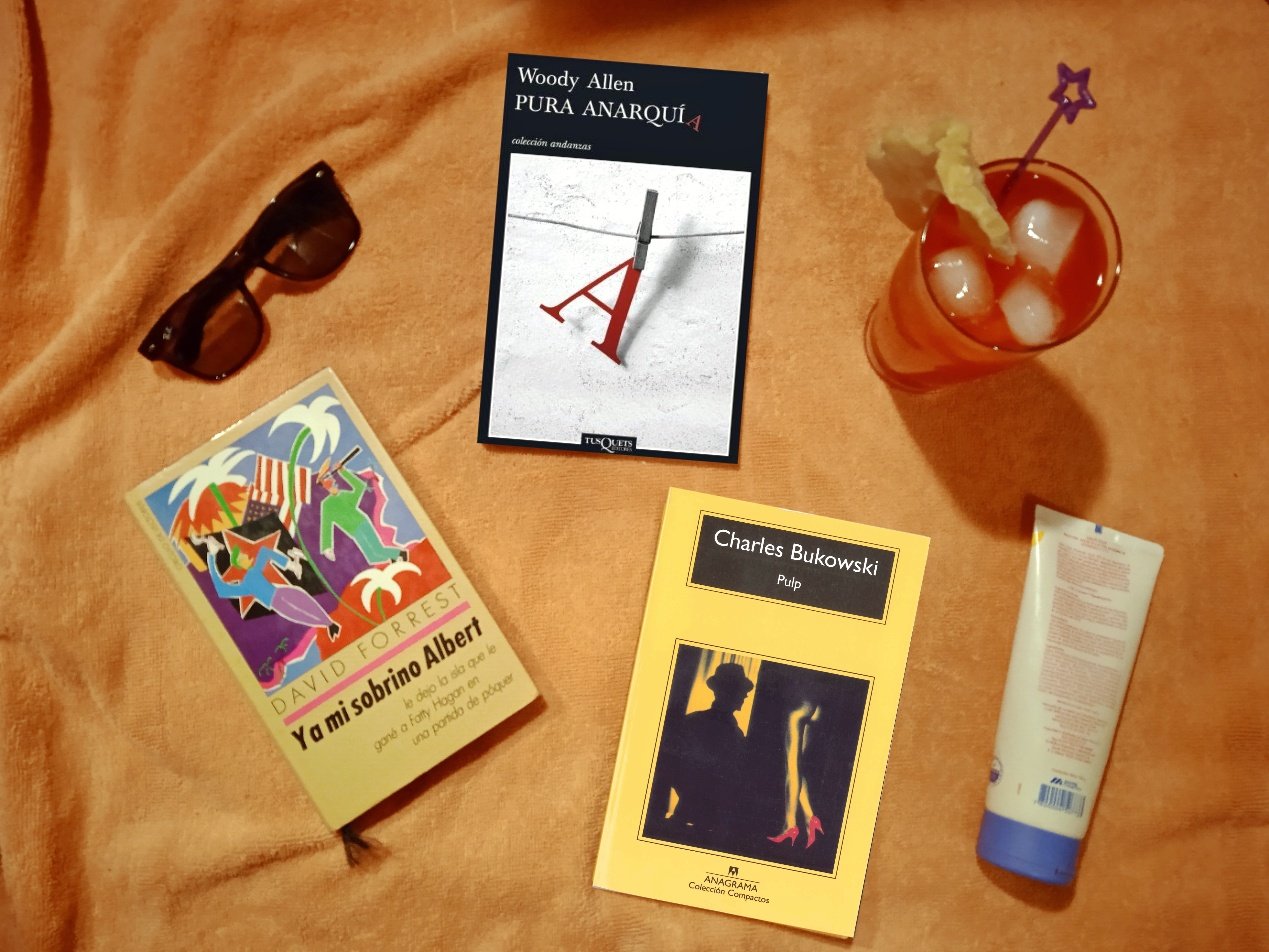as i announced In the past weekI will be bringing less dense literary proposals this summer, since the only dense thing that we need right now is the texture of the solar project and the crushing of ice in the cocktail or in the Frappuccino.
Let’s go to the mess:
And to my nephew Albert… From David Forest:
Some time ago I wrote: Politics is the real villain of all talesand in this novel, a crazy pacifist parody, my phrase makes sense —modesty, get away!
Let’s start talking about the title, one of the longest I’ve seen: And to my nephew Albert I leave the island that I beat Fatty Hagan in a poker game, It is known as And to my nephew Albert…, because that title is almost the size of Pablo Picasso’s full name —by the way, if you didn’t know, the founder of cubism was called Pablo Diego José Francisco de Paula Juan Nepomuceno María de los Remedios Cipriano de la Santísima Trinidad Ruiz y Picasso, in end… Let’s go to the novel that occupies us:
Albert inherits a useless island in the middle of nowhere, which, as the very long title of the novel states, was left to him by his uncle Alf, who won it in a poker game. Arriving to take possession, he finds some shorebirds and a naked young woman sunbathing near his private boat. Her name is Victoria, and from that moment the mechanisms of this parody begin to move. Victoria as the English queen, and Albert as her husband; hence they play at being monarchs among themselves within the context Foul Rockwhich is what the little island is called.
“—I’ve never seen you before and I’ve been coming here for years to sunbathe.
(…)
“This is my first visit. I just inherited it, so I guess that makes me king.
“Forgive me, Your Majesty. Be welcome. I only use it for sunbathing.
—Typical colonialism. They take everything they want from the country and then, when they are kicked out, they want to make people believe that what they took was worthless.
—I suppose you are rich; a socialist with a right-wing bank account…”
From this talk, both begin a romance that the author composes with some situations and dialogues full of jokes, what in good Cubans we know as revelers or jodedor. His mother-in-law, a toupee-wearing lawyer, is a character who will gain some influence later on.
From the second chapter we are introduced to Vorolokov, a Russian spy who goes on a fishing boat, the Dimitri Kirov, with the mission of following the movements of NATO warships. Here the physical descriptions of the Russians are in tune with the view of them in England, politically speaking; they are all disgusting. Eye, I do not say it, it is as they are described in the book. Boris the repellent cook, the crew who are all family or relatives, who are called by those above the white shirts. The only one who is saved from being described as ugly is Tanya, a young woman who listens to western music (we already know how communists are with this ideological diversionism).
“(…) Its course was a series of zigzags in the scientists’ charts. Verolokov felt upset and frustrated (…) he did not know anything about the weapons they carried, only that they were on board and that they were important and effective (…) Vorolokov knew that he was a puppet… ”.
The story, which we know will unite the destinies of these distant protagonists, takes an unexpected turn, and suddenly Dimitri Kirov for some reason unexpectedly lands on the happy island where Albert and Victoria made love —and they were not on business. of war, like the Soviets, what an irony that of the author.
What happens next is total madness. The Russians decide to buy half of the island, Albert’s father-in-law gets in the way as a lawyer -and English, of course-, the Americans find out and show up to buy the other half of the useless island, which was only a refuge for the two lovers, and suddenly an almost warlike conflict is armed that wets France and England as well.
All the portraits of the characters are caricatured, the situations bizarre, some quite hilarious dialogues, and political-social and even religious criticism is present at all times. And why mention the portrait of the presidents and prime ministers, total ridicule.
As it was written and published in a time before these times of “cancellation” that sometimes get out of hand, there are also jokes, comments and descriptions that today could make the hair of the global patrol of politically correct agents stand on end; but one detail must be pointed out, all this happens in the thoughts and comments of the characters, and we are talking about military men, rude, some of them quite uneducated, and the main thing, as I said, was written in another time. We cannot read today without contextualizing.
Suddenly the Soviet military and the Americans, plus the English civilians who own the island, are forced to live together in such a small space, and little by little they will get closer, although it is really Rasputin the dog who enjoys everything the most, because it benefits from the favors of all the inhabitants without distinction by gentile. Alcohol arrives to iron out rough edges, love also makes an appearance, while the bosses sow discord —here the prime minister is rather fond of cactus cultivation. It is a novel plagued with symbols, as a good parody that it is.
Faced with these territorial disputes, the island and nature will surprise with their own plans, or rather, with spontaneity.
David Forrest is the pseudonym used by the English writers Robert Forrest-Webb and David Eliades, who, apart from the novel that concerns us today, wrote others such as The grand dinosaur heist Y the coming flood.
pure anarchy Woody Allen:
It is a collection of 18 humorous stories —magisterial—. The cynical and mocking way of Woody’s narration is a delight, there is no paragraph that escapes him, from the descriptions to the actions, at all times he is making fun of what surrounds him and what he is, therein lies the anarchy that encompasses these stories, because he is convinced and ends up oblivious to laws of ¿morality, decency, what? mainstream? In short, a non-follower of the formal and informal laws of an extremely plastic society.

There is also a bit of anachronism in his person or in his characters who do not know how to be part of the modern world, snobfull of tricks and tricks to prove and win more than to be.
His allusions to the world of cinema and literature stand out, as well as other spheres of entertainment and culture in general; Woody is a scholar, come on!, and as a good scholar he chooses hedonism and fun.
The surnames that he invents to criticize or make fun of are unmissable, here are a couple of examples that I loved: Diverticulinsky Y Sensually.
He honors us with the detail of revealing, in some cases, his sources of inspiration for the stories, say articles of the New York Times or a parish sheet, which quotes in fragments that it shares before the story in question.
With crazy situations and hurtful dialogue like a gunfight, it makes you swing between the ridiculous and the sublime with no time for anything else because you have to flee, jump, survive, be stunned or close an uncomfortable deal with shrugged shoulders, a kiss or a hug. food. These formulas are typical of Woody’s movies, and those of us who enjoy it appreciate them very much.
He is so aware of his acidity that in one of his stories he says: “(…) Pickle and mustard: that stuff dreams are made of” —which in context, that phrase contradicts the culinary ridiculousness of millionaires—. The offensive correspondence in the story Calisthenics, hives and final assembly they are to tear up. The twists in the endings are just as good and many are quite unexpected.
His cinematographic-style narration, how good an American and a filmmaker he is, makes the stories seem shorter and read in nothing. His adjective choices are hilarious.
Here is an endless number of bad bets, shady deals, mediocre artists who think they are great, opportunity hunters who run like the Coyote behind roadrunner destined to lose your head against a rock or to explode with the bombshell of your own stupidity, as well as many cultural references as a curiosity or as comparative elements. An easy to read and very enjoyable book.
I guess I don’t need to talk about who Woody Allen is, do you?
pulp by Charles Bukowski:
It is another of the creations of the irreverent Bukowski, in this case, he builds his crazy novel excused by the nature of the genre that gives the work its title, and exaggerated in the end, it goes beyond roasting with the levels of nonsense.
Nicky Belane, the protagonist, is a mediocre Californian detective who, in the midst of a bad streak, has four assignments to solve; he must find a French writer who should be dead and has been seen in a bookstore, find the Red Sparrow, check if a wife is unfaithful to her wealthy husband and break up a toxic relationship bonded for strange reasons.

Reading this is like being in a weird movie whose directors could be Tarantino or John Waters. Suddenly there are some aliens, a triad of apes in pink suits who are mafia thugs, later a great image of the protagonist drinking whiskey sitting on a sofa next to an inflatable sex doll to conclude in front of a very original representation of death. With this I warn you that this is not a conventional police novel, in fact, this book has very little conventional.
I must celebrate the mixture of fanciful elements with the most plausible as very successful; the organic way in which he manages to mimic these elements makes reading very fun and surprising.
Here are entities immune to bullets, typical movie scenes not to go and a lot of dialogue, a lot, a lot of dialogue. Yes. Belane, the detective lose of this story, you will stumble between situations and characters that have little to do with the main plot but are there to make you laugh like a fool or scrunch up your face in disgust.
It is a closed story and like the typical movie pulpwill have its obligatory scene so that the subject who is looking for an object faces that…
As always happens to me with Bukowski, I have hunted some of his reflections as embellishments in the coarseness and impudence of the plot, sometimes even with a certain lyricism:
“(…) The more junk you do without, the better you will see. Everything works going backwards. Back up and Nirvana will jump into your lap.”
“If you persevered long enough, good luck almost always came.”
“You know you’re old when you sit wondering where it all went.”
“We are disgusting, doomed to our dirty little habits. Eat and fart and scratch and smile and go on vacation.”
I hope you like some of these proposals, or all of them, because they are refreshing stories to alleviate a little this heat that sometimes leaves us without the desire to think or do anything, but as Cuqui said La Mora: Culture has no fixed moment, and that is a great truth.
Until next week.















